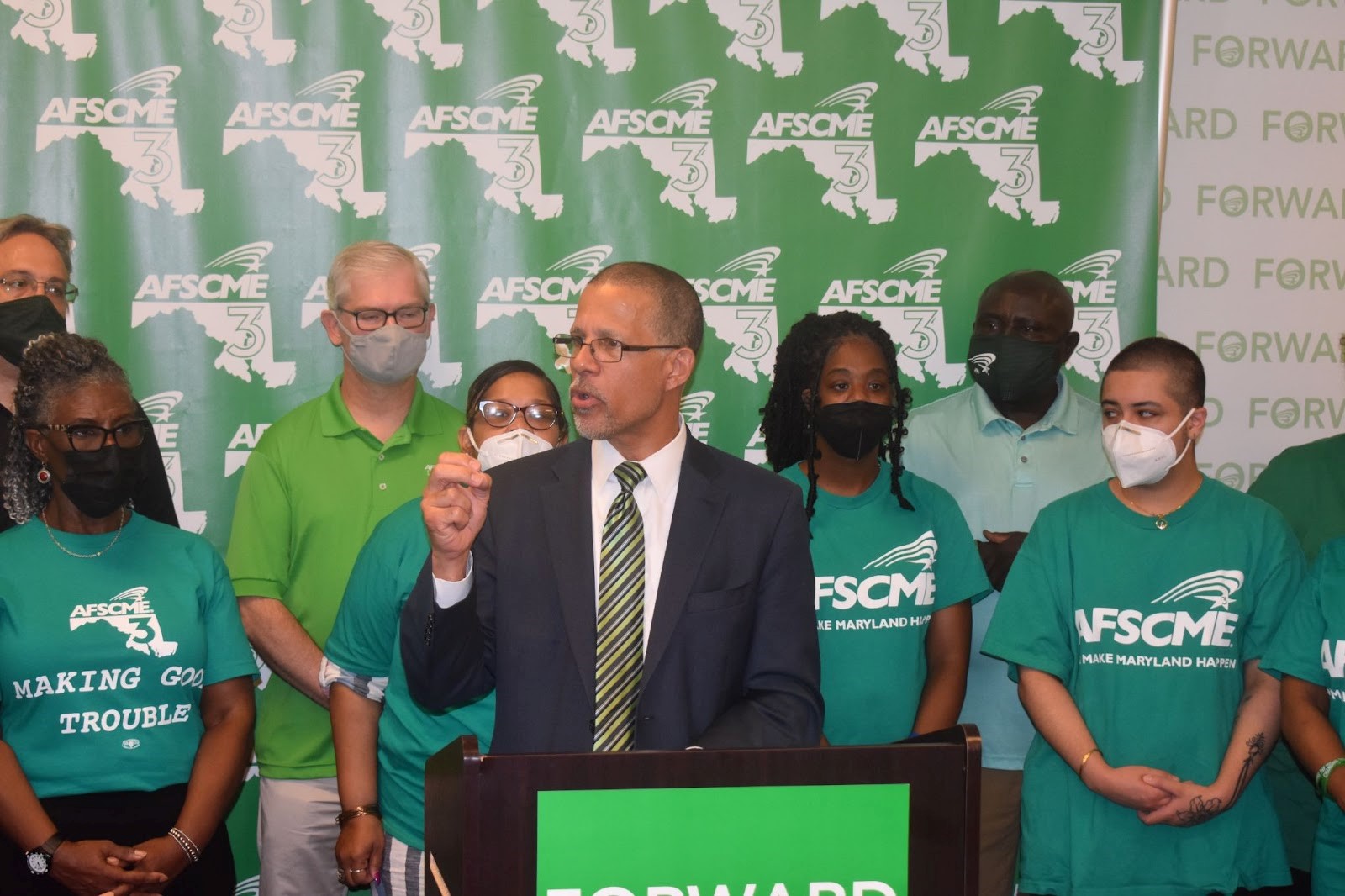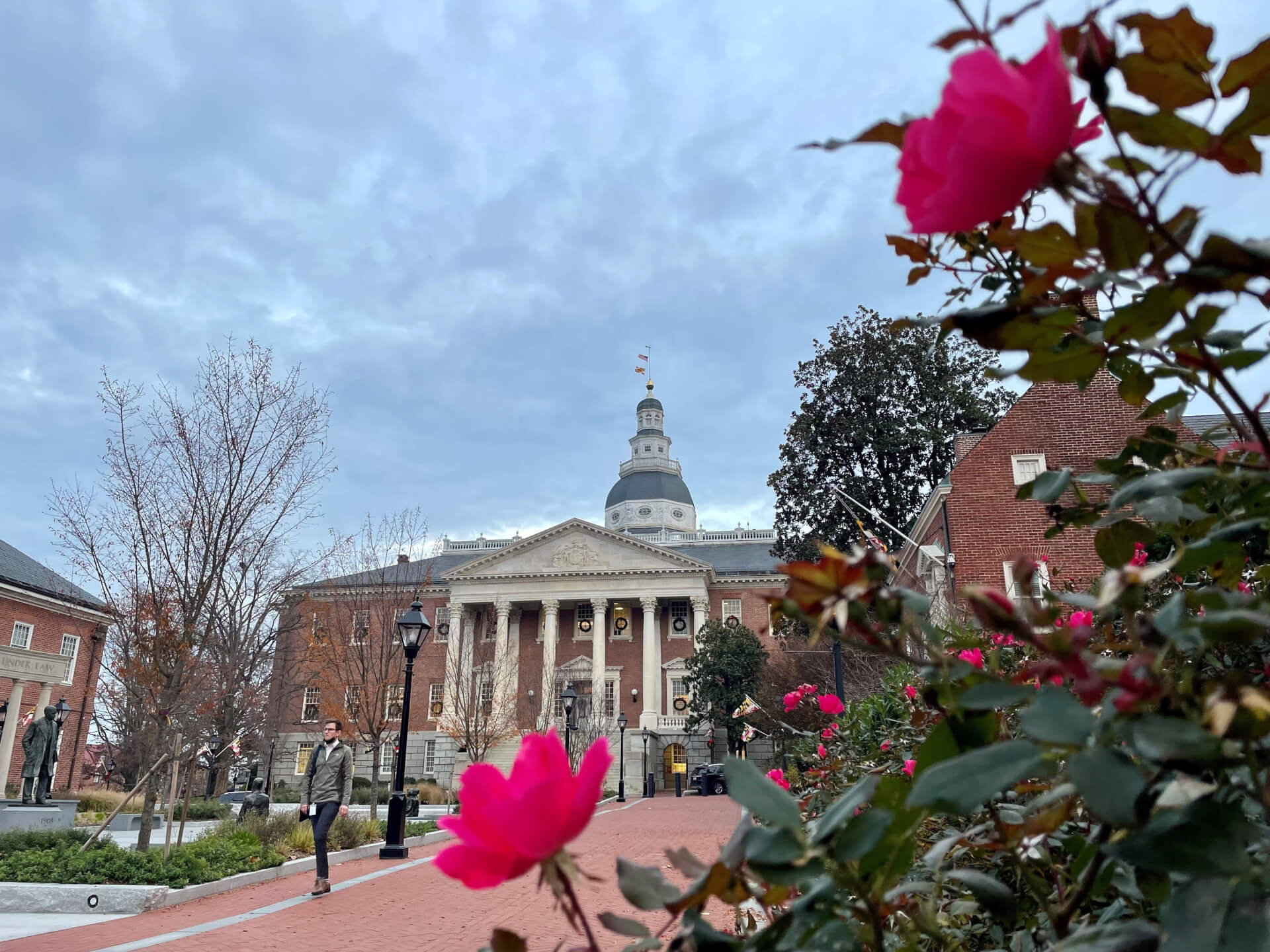Political notes: Inauguration dates, more on Lierman’s transition, and women in legislatures

It’s fairly well known that Inauguration Day for Gov.-elect Wes Moore (D) and his running mate, Aruna Miller (D), is Jan. 18, and there will be an inaugural ball and other festivities. But what about Attorney General-elect Anthony Brown (D) and Comptroller-elect Brooke Lierman (D)?
Brown is scheduled to be sworn in on the morning of Jan. 3 in the House of Delegates chamber in the State House — where Brown served as a delegate from 1999 to 2007 and as lieutenant governor from 2007 to 2015. There will also be a celebration for Brown, but details have not been finalized.
Lierman will be sworn in on Jan. 16, at a time and place to be announced. Because it falls on the Martin Luther King Jr. birthday national holiday — a function of a timetable laid out in the state constitution — Lierman is planning a service event in the morning, in addition to an evening celebration. Details for these also haven’t been finalized.
Lierman on Thursday revealed more details about her transition efforts. She has divided her transition team into six work groups: Procurement & the Board of Public Works, Tax Administration & Customer Engagement, Data & Innovation, Pensions, Public Engagement, and Local Government Engagement. Each work group will have two to four chairs and a dozen or more members (in some cases, well more than a dozen).
Here are the leaders of the workgroups:
Procurement & the Board of Public Works: Veronica Cool, who runs a marketing, management and financial consulting firm; Robert Dashiell, a civil litigation and procurement attorney; Ash Shetty, the chief procurement officer for Montgomery County government; and Eben Smith, a business management consultant.
Tax Administration & Customer Engagement: Sharonne Bonardi, executive director of the Federation of Tax Administrators and former deputy comptroller; Robin McKinney, co-founder and CEO of the CASH Campaign of Maryland; and Richard Madaleno, chief administrative officer for Montgomery County.
Data & Innovation: Former Del. Andrew Cassilly (R-Harford); Ben Seigel, principal of Economic Mobility Consultants; Terry Speigner, who runs an IT company in Prince George’s County; and Dipak Thakker, who runs a software company in Montgomery County.
Pensions: Patrick Moran, president of AFSCME Local 3; Sheila Morgan-Johnson, retired executive director of the District of Columbia Retirement Board; and Andrew Serafini, a patent lawyer.
Public Engagement: Al Delia, a vice president at Frostburg State University and an education technology consultant; Prince George’s County Councilmember Dannielle Glaros (D); Laura Gutierrez, the Hispanic community services specialist in the Annapolis mayor’s office; and Denton Town Councilmember Doncella Wilson.
Local Government Engagement: Theresa Kuhns, executive director of the Maryland Municipal League; and Michael Sanderson, executive director of the Maryland Association of Counties.
“I am excited to have so many talented Marylanders willing to serve by lending their thoughts and ideas on how we can ensure the Comptroller’s office is truly serving all Marylanders,” Lierman said. “This is a dynamic team that I know will focus on big ideas that will move Maryland forward as well as the small details that just make government work better.”
Shortly after the election, Lierman announced that outgoing Comptroller Peter Franchot (D), Prince George’s County Executive Angela Alsobrooks (D) and state Sen. Susan Lee (D) would serve as the honorary co-chairs of her transition team. Former state Treasurer Nancy Kopp (D), Del. Joseline Peña-Melnyk (D-Prince George’s), and Candace Dodson-Reed, chief of staff to the president of the University of Maryland Baltimore County, are the transition team’s working co-chairs.
Speaking of Lierman, she’ll do some holiday shopping with Franchot in downtown Baltimore on Friday morning, first at The Peanut Shoppe, an 89-year-old candy shop, then at Viva Books, a year-old new and used book store. Franchot has been doing his holiday shopping publicly at locally-owned Maryland stores for years — sometimes in the company of Gov. Larry Hogan (R).
Record-setting number of women in state legislatures
A record number of women will soon serve in state legislatures, breaking the previous high count of female lawmakers by at least 69 seats and bringing total representation to more than 32%, according to the Center for American Women and Politics.
States will have at least 2,376 female lawmakers in 2023, including women elected in 2022 and holdovers. That is an increase in the number of women writing and voting on state laws from the current record of 2,307 women set in 2022. Another 59 races this year with female candidates are too close to call.
Democrats hold the lead with 1,560 members, while Republicans have 795. The remaining female state lawmakers don’t belong to a major party or are independent. CAWP, which is a unit of the Eagleton Institute of Politics at Rutgers University in New Jersey, noted that means GOP female lawmakers make up just 33.5% of women state legislators.
The numbers are far from reflective of the nation’s population, though women have reached parity in some states.
Colorado will join Nevada next year as the only two states that have at least half of their legislatures made up of women, according to CAWP’s analysis of this year’s elections.
“Nevada became the first state to reach this milestone following the 2018 elections. As of Election Day 2022, 58.7% of Nevada state legislators were women, and in 2023 Nevada’s legislature will be 60.3% women,” CAWP wrote in a summary of state legislative election results.
“Colorado’s legislature will also be majority-women in 2023, with women holding 51% of state legislative seats,” CAWP wrote.
Women hold exactly half of the seats in the Arizona and New Hampshire Senate chambers.
At 45.6%, Maryland’s General Assembly is the country’s fifth highest in female representation.





 Creative Commons Attribution
Creative Commons Attribution